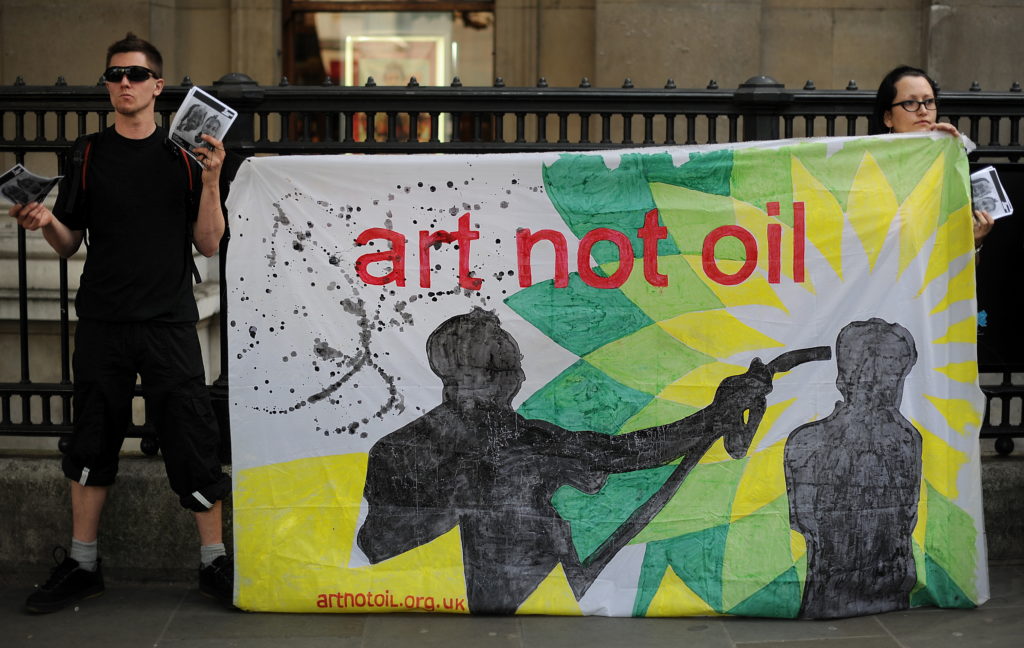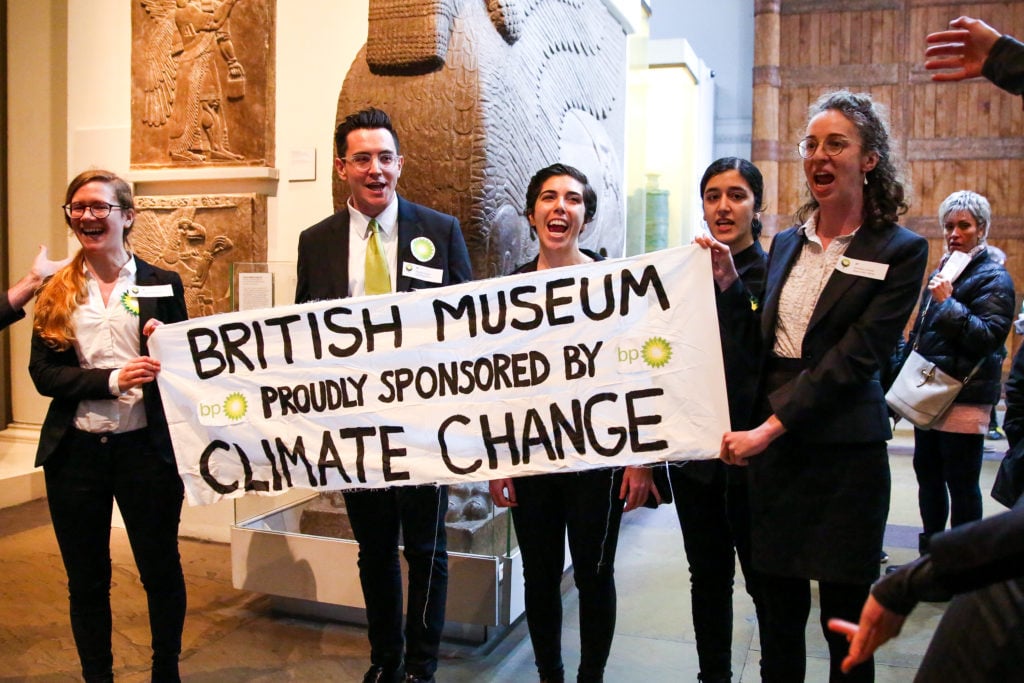Politics
Anish Kapoor, Sarah Lucas, and Dozens of Other Artists Demand That London’s National Portrait Gallery Severs Ties With Oil Giant BP
A newly published letter says "the loss of BP as a source of funding is a cost worth bearing."

A newly published letter says "the loss of BP as a source of funding is a cost worth bearing."

Taylor Dafoe

Nearly 80 artists, including five Turner Prize winners and 10 former competitors for the National Portrait Gallery’s BP Portrait Award, have written an open letter to the museum’s director, Nicholas Cullinan, urging him to end the institution’s sponsorship deal with the oil corporation.
The letter, written by Gary Hume, a juror for the award, and signed by artists including Antony Gormley, Allen Jones, Anish Kapoor, Sarah Lucas, Christian Marclay, Gillian Wearing, and Rachel Whiteread, comes just weeks after Hume wrote a separate letter with the same message.
The new demand cites BP’s role in “furthering the climate crisis” as one of the world’s largest fossil fuel producers and asks the museum not to renew the company’s partnership once it expires in 2022.
“A crucial role of art is to describe to future generations what it is to be alive now, and to provide an echo of our humanity to those who seek it in the future,” the letter says. “The ethical red lines regarding art sponsorship are always shifting, tracing the curve of corporate behavior and what’s regarded as the public good. This was clearly demonstrated when the NPG moved away from its partnership with tobacco company John Player thirty years ago, and the Sackler family earlier this year.
“We believe that, today, the loss of BP as a source of funding is a cost worth bearing, until the company changes course and enables future generations to make art in a world that resembles our own.”

Activists protesting BP at the British Museum in London, February 2019. Photo: Dinendra Haria/SOPA Images/LightRocket via Getty Images.
“We continually aim to expand our list of corporate supporters and find new funding partners, although attracting new sponsorship is challenging in the current economic conditions,” Cullinan said in a statement to artnet News. “With government funding accounting for just 33% of our total income, it is essential for the Gallery to work with a wide range of corporate partners to fund our work. Their support enables us to stage activities and exhibitions that we would not be able to do otherwise and to remain free and open to all.”
“Our commitment is to act in good faith and for the public good,” he added. “Our challenge is to fulfill our remit, fund our work for the public, and find positive solutions appropriate to the changing times in which we live.”
A representative from the museum says Cullinan has also reached out directly to Hume and other signatories.
The Portrait Award, an annual open-call competition honoring painted portraiture from around the world, is widely recognized as one of the most significant prizes of its kind. The top-winning portraitist, selected by a rotating jury, is given £35,000 ($43,000) in prize money, while all of the finalists are included in an exhibition at the NPG. This year marks the 40th anniversary of the award, and the 30th straight year under BP sponsorship.
Brighton-based artist Charlie Schaffer was named this year’s winner at a private ceremony held on June 10. His moody painting of a young literature student in a fur coat was chosen from 2,537 submissions from 84 countries. But his win was overshadowed by BP protests that grew in intensity in the days leading up to the event, culminating in an action by an activist group that temporarily blocked the entrance to the facility where the ceremony was held.
“BP are proud to have supported UK arts and culture for over 50 years,” a representative from the company said in a statement to artnet News. “Our long-term support enables our partners to plan engaging, educational, and powerful exhibitions and performances. In the years since we’ve been supporting the arts over 50 million people have enjoyed BP sponsored activities and programs.”